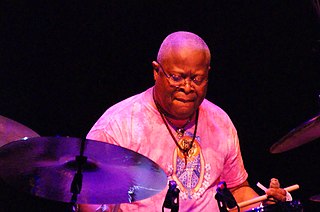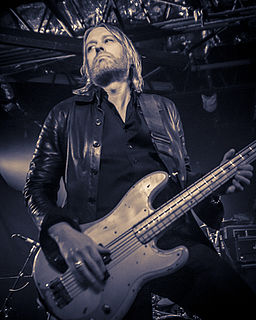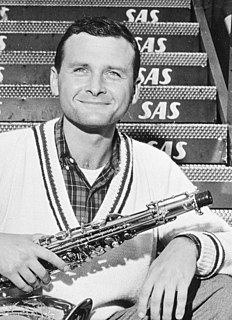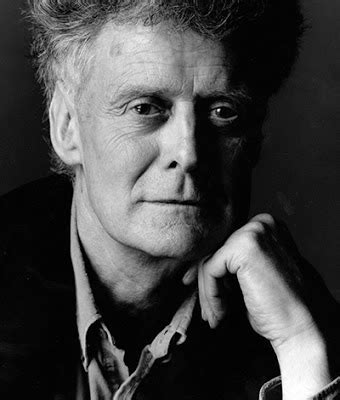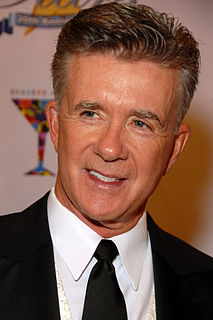Top 204 Improvising Quotes & Sayings - Page 4
Explore popular Improvising quotes.
Last updated on April 19, 2025.
When I did The X-Files, there was certainly less of that because the script was as it was and it was such a wonderful script and it was quite complex and there wasn't a hell of a lot of improvising I could do to bring to the table, but I guess what I did bring was a sense of self and that the reason I was cast was because I did come across as someone who possibly was only human for a short time.
When you improvise on the spot, people are very reluctant to have soft moments or quiet moments or sad moments because they're trying to fill up the spaces. So they always go towards, "How come you're late?! You're supposed to have my shirt ready! You call this a dry cleaner?!" That's what happens. That's why improvising on the spot gets very dicey.
There's a difference between ad-libbing and improvising. And there's a difference between not knowing what to do and just saying something. Or making choices as an actor. As a writer also, as a person who's making a film, as a cameraman, everything is a choice. And it seems to me I don't really have to direct anyone or write down that somebody's getting drunk; all I have to do is say that there's a bottle there and put a bottle there and then they're going to get drunk.
Cornelius Cardew very famous in Britain, because he was the darling of the avant-garde, and he played in a band called AMM, which was an improvising band in the '60s. Paul McCartney used to come watch them. Later on in life, he became disenchanted with avant-garde music, because he felt it couldn't reach the public. It didn't have a wide enough appeal. So he'd take these tunes of old English folk songs and write Stalinist lyrics over the top of them. I do think that when he changed to folk songs, he actually lost the tiny audience he already had, which is quite interesting.
When I'm improvising, I'm out of my head. I've done a lot of projects recently where there hasn't been a script. It's all been based on outlines. At first, that's terrifying, just because you don't have the words in front of you and you don't know how it's going to come out, but that's what's really exciting about it. You don't know what's going to happen. It really forces you to listen to the other people, and I think the most natural acting comes out of that.
It's kind of like being a writer in the sense that you always hear other writers say, 'Well, the best way to start writing is to just start writing.' The same goes for improvisation. You want to start improvising, just start playing notes. And the more you do that, the more comfortable - or not comfortable - but I guess how you're able to adapt to situations. You become more familiar with your instrument. As soon as you have a musical thought, you can go ahead and add to that musical thought and know your way around.
THAT crazed girl improvising her music. Her poetry, dancing upon the shore, Her soul in division from itself Climbing, falling She knew not where, Hiding amid the cargo of a steamship, Her knee-cap broken, that girl I declare A beautiful lofty thing, or a thing Heroically lost, heroically found. No matter what disaster occurred She stood in desperate music wound, Wound, wound, and she made in her triumph Where the bales and the baskets lay No common intelligible sound But sang, 'O sea-starved, hungry sea
Improvisation in general is good, and improvising material into themes, turning the material into something codified and repeatable, taught me scenic structure and dramatic gambits that work and things that are appealing both as a performer and an audience member, like you know, what does "want" really mean in a scene, and how do you achieve your want, and how is that expressed, and how do you achieve closure? Those are all things that I learned performing at the cabaret after just doing the same scenes over and over and over again over the years, with my own ability to change.
Truth of the matter is, jazz is American music. And that doesn't mean bebop. Jazz is really about improvising. All the music that's been created in America has been pretty much improvised... Whether it's hillbilly or rock n' roll for blues, it's basically jazz music... It's basically about another way of hearing what comes out of America.
Wherever inspiration comes from, it's like I'll hear a melody and chords, almost a rough structure of the whole thing [song]. I'll just hear it and chase what's in my head. The rest comes from jamming with band, improvising, seeing what comes up as well. I'll come up with it off the top of my head, catch it, sing and hum, and if something is missing, just jam, and that's the [songwriting] process.
Music making features real-time creation, real-time decisions and actions. It's basically improvisation, which is the stuff of everyday life. In the realm of discourse about music, improvisation is marginal, but in the realm of doing it, it's omnipresent. Strange distinction here: we're improvising all the time, but when we tend to talk about music, we tend to talk about objects that are fixed, like recordings, scores, pieces.
When I got this saxophone, it became a religion. There wasn't TV, there wasn't much money, and there was just a real dedication.... I never thought of it as an art. It was just work that I loved. Not just work, but work that I loved. I loved it so much, I would play it if nobody listened to it. Any jazz musician, if there's nobody around to listen, would play just for the sheer joy of improvising music.
I had been used to improvising and even in the audition I was feeling free to rearrange Aaron Sorkin words a little bit, as lovely as they were. I didn't find out until after I got the part how furious Aaron was at me for doing that. They said, "He was livid. He did everything in his power not to jump down your throat!" But I came to realise that Aaron was writing in metre and the rhythm of the language is very important.
Remembering that life can be full of surprises is useful in any part of your life. You can try a new way of singing a song you’ve performed for years, a new way of showing your family your love for them, or a new recipe. Don’t just play the licks you know. We’re all improvising all the time — it’s good to recognize that and embrace it.
I think it’s very important to live in the present. One of the great things that improvising teaches you is the magic of the moment that you’re in … because when you improvise you’re in right now. You’re not in yesterday or tomorrow—you’re right in the moment. Being in that moment really gives you a perspective of life that you never get at any other time as far as learning about your ego… You have to see your unimportance before you can see your importance and your significance to the world.
Not only are we not using any programmed loops or computers onstage, we're also improvising with our instruments. We're playing our instruments probably more so than most people that I see play their instruments. I think we all sort of strive for that - we all want magical things to happen onstage. We don't say "mistakes" in this band, we call them "highlights."
There's more truth about a camp than a house. Planning laws need not worry the improvising builder because temporary structures are more beautiful anyway, and you don't need permission for them. There's more truth about a camp because that is the position we are in. The house represents what we ourselves would like to be on earth: permanent, rooted, here for eternity. But a camp represents the true reality of things: we're just passing through.
The key to writing for Richard (Pryor) was to just push his buttons and then know when to push the buttons on your cassette recorder. You'd get him started, then surreptitiously start recording when he got inspired and started walking around the room and improvising in character. Then you'd get it all transcribed and take credit for it.
I haven't written a novel or something that long, because I really am improvising all along and the story is growing new limbs to do what it needs to do. So there's very little planning. There's a little planning where I say, "Well, it looks like I'm going in this direction, ok, good." But there's very little forethought or intellectual justification: "Oh, look, I'm putting in a theme park because that represents dystopian America!"










